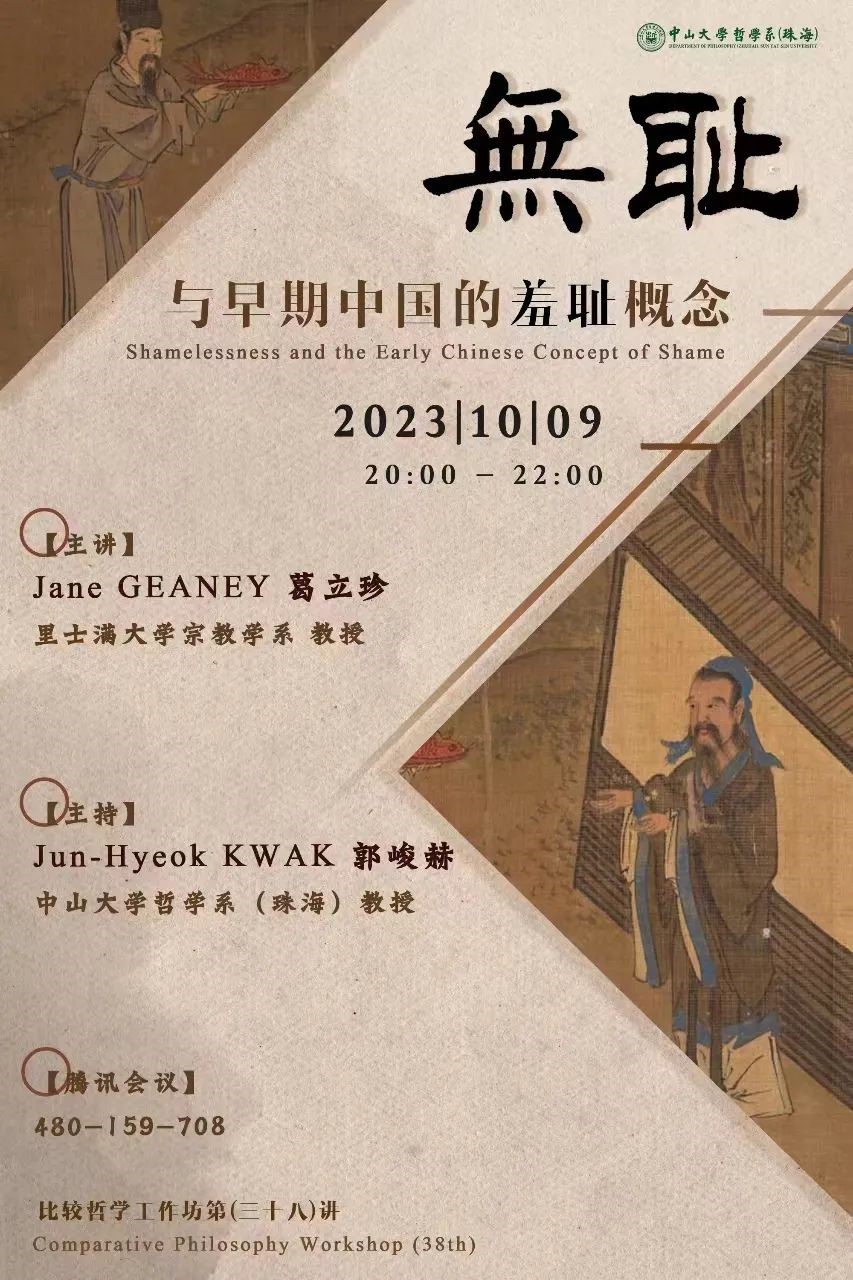学术资讯 | 比较哲学工作坊第三十八讲:无耻与早期中国的羞耻概念
无耻与早期中国的羞耻概念

✦ +
+
Comparative Philosophy
Workshop (38th)
Organizer:
Department of Philosophy (Zhuhai),
Sun Yat-sen University
Topic:
Shamelessness and the Early Chinese Concept of Shame (Virtual)
Speaker:
Jane GEANEY (葛立珍), Professor, Department of Religious Studies University of Richmond
Moderator:
Jun-Hyeok KWAK ,Professor,
Department of Philosophy (Zhuhai), Sun Yat-sen University
Time:
Oct. 9. 2023 20:00-22:00
VOOV:
480-159-708
ABSTRACT:
The practice of shaming is disconcerting. Arguably, the people who most deserve to be shamed are least likely to derive any moral benefit from it. Moreover, when acts of shaming are unjustified, shamelessness can feel like a moral victory. I will employ ideas from Early China to help untangle this contemporary puzzle of shaming and shamelessness.
My chapter looks for insight from China’s rich classical period, when shame ranked among the highest of virtues and “guilt” referred to having committed a crime. As I once argued, early Confucian texts contrast with the dominant Western philosophical tradition on the physical aspects of shame. Whereas vision (i.e. being seen) is the most important perceptual mode for depictions of being ashamed in the Western texts, touch is the primary sensory metaphor for shame in the Confucian texts I examined. Hence shame was a sense of contamination resulting from contact with the unethical. For this chapter, I will consider the puzzle of shaming through a historically inflected analysis of terms, focusing on whether early Chinese texts in general use contagion metaphors as often for shamelessness as early Confucian texts do for feeling ashamed.
✦ +
+
比较哲学工作坊第(三十八)讲
主办:
中山大学哲学系(珠海)
主题:
无耻与早期中国的羞耻概念(线上)
主讲:
Jane GEANEY (葛立珍)
里士满大学宗教学系 教授
主持:
Jun-Hyeok KWAK (郭峻赫)
中山大学哲学系(珠海)教授
时间:
2023年10月9日20:00 - 22:00
地点:
腾讯会议:
摘要:
对羞耻的实践(practice of shaming)令人不安。
本章将从中国古典时期的丰富思想资源中找寻洞见,在这一时期, “耻”(shame)被列为最高的美德之一,而“疚/愧”(guilt)则指向的是犯罪。
来源 | 哲珠新媒体
文稿 | 贾永泽
海报 | 帅芃莲
编辑 | 王志远
初审 | 韩 珩
审核 | 卢 毅
审核发布 | 屈琼斐


